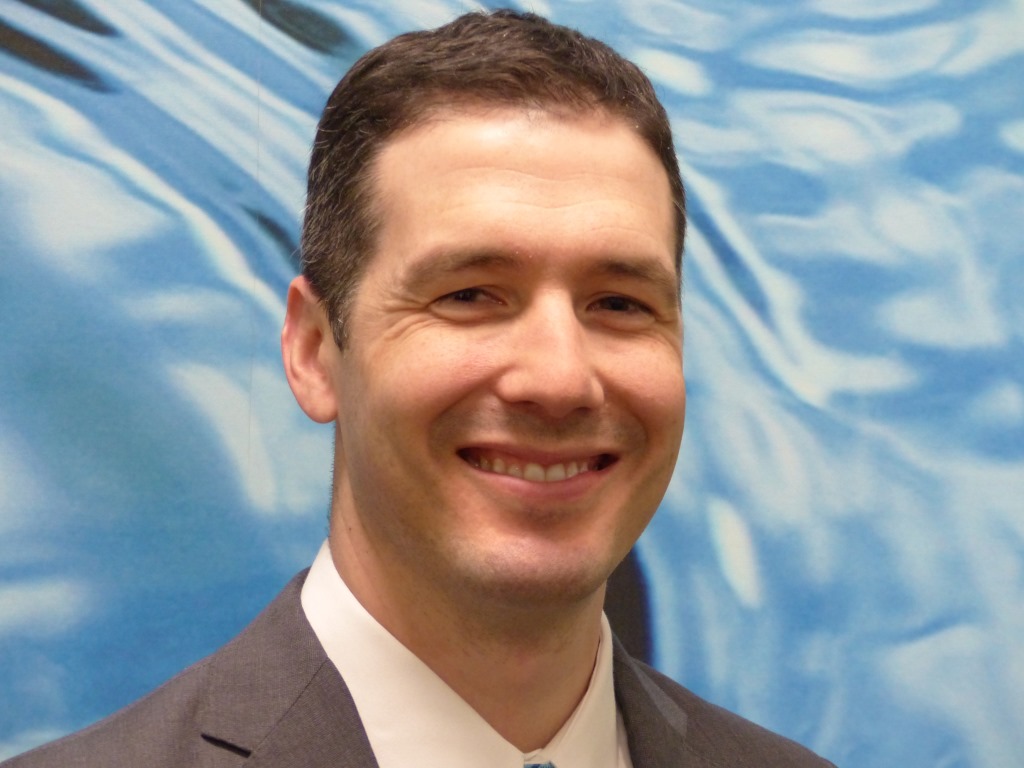The New Mr. Green
Erick Shambarger is the city's new head of the Office of Environmental Sustainability. He aims to make green mainstream.
Milwaukee’s Office of Environmental Sustainability has a new Sustainability Director. Erick Shambarger was appointed Director by the Common Council last week Tuesday. Shambarger has spent the last 13 years working in city government, the last five as Deputy Director of the Sustainability Office. He feels that former executive director Matt Howard left the environmental sustainability office in great shape. Shambarger’s background is in both finance and energy policy, and he believes that combination of experience will stand him in good stead in his new position.
“The goal is to make sustainability a mainstream thing,” Shambarger says. “It shouldn’t be this counter-cultural thing. It should be embedded in everything we do as a government, as homeowners, and as businesses. And the way to kind of make that connection is to demonstrate that sustainability is about wasting less.” Shambarger believes that by cutting back on energy or waste we create, we are contributing to the longevity of our city. To him, sustainability is about preserving the environment that sustains us. We talked to him about a few projects that are underway and his goals as the new executive director.
One of the city’s most successful projects, The Milwaukee Energy Efficiency Program, or Me2, has gained national recognition. It is a financing program that allows homeowners to take some of the money that they spend on their utility bill each month, and put it towards home improvements that will result in a more energy-efficient home. It has been implemented in over 1,300 houses and over 130 commercial buildings, and has generated $24 million dollars in energy efficiency improvements. The program is ongoing.
Similarly, there is a program that focuses on small- to medium-sized manufacturing companies in Milwaukee called Me3. The Me3 program encourages companies to consider their operations and look for ways to save on energy. The sustainable manufacturing program helps identify opportunities for savings, not just on energy, but also by researching natural resources that go into a company’s manufacturing process. Ultimately, the program helps to create jobs and bring in dollars from areas outside of the city. Shambarger says there is currently room for eight more companies to benefit from this program.
The city’s Home Gr/own program helps to implement that goal. New resources are created by the transformation of city-owned, underutilized, vacant lots into green spaces that provide the opportunity to grow local, healthy food for people in the community. These pocket parks, Shambarger hopes, will create excitement for environmental awareness. Community members should expect to see one of these projects on 14th and North within a couple weeks, he adds.
The department is also putting together a plan for more green infrastructure. Shambarger notes the problems that come with increasing amounts of rain and having too much area covered in pavement. Not only does green infrastructure provide a more visually appealing landscape, but it serves to help eliminate risk of flooding and storm water pollution that can overpower the city’s sewerage system.
The Sustainability Office is piloting an approach to stormwater management called BaseTern. An abandoned or foreclosed home is demolished but the basement cavity remains intact. The empty lot would be covered with turf to satisfy both aesthetic and safety concerns, but the basement would be able to hold runoff. “It’s a cost-effective way to manage a whole lot of stormwater,” Shambarger says. The feasibility study for this concept gained national attention and there is hope for an actual model.
ReFresh Milwaukee is another program supported by the Office of Sustainability. The program focuses on transforming underutilized parts in the city into more environmentally workable areas. The Inner Harbor redevelopment project is one such example. The concrete laden land around Barnacle Bud’s restaurant is prime real estate for new green infrastructure.
Shambarger is confident that Milwaukee is on the right track. “At the end of the day, sustainability is a fancy word for making things that last,” he says. “I think Milwaukee is really well positioned to do that.” Whether speaking at national conferences on energy efficiency or speaking with delegations from visiting communities who aspire to have the programs and systems in place that we do, Shambarger touts Milwaukee as a model for other cities around the country. Green can come in a lot of different shades, and Shambarger hopes to help color the entire city accordingly.























Congratulations Erick! This is well deserved and great to see local talent get recognition and promotion. Milwaukee and the region need your dedication, energy, and knowledge.